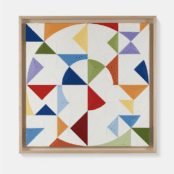[dropcap style=”font-size:100px; color:#992211;”]I[/dropcap]n late 1999 David Byrne, avant garde pundit and Talking Head, laid down the reasons why he hated world music. He argued that World Music as a genre was a ‘way of dismissing artists or their music as irrelevant to one’s own life’ which in turn ‘reasserts the hegemony of Western pop culture’.
So in visiting the main World Music festival WOMAD, nine years on from the publication of Byrne’s article in the New York Times it was time to ask; has anything changed? Was Byrne right in the first place? Is cultural consumption necessarily a bad thing?
WOMAD (World of Music, Arts and Dance) was held at Charlton Park in Wiltshire during one of the hottest weekends of 2008 and brought together a variety of different artists from around the world, ranging from Eddy Grant and the Frontline Orchestra (Guyana/South Africa) to AltaiKAI (Altai republic). Attendees came from all parts of the country, from rambunctious country teens to donnish Oxbridge types with no clear demographic sway in any direction (a possible exception being mothers with pushchairs). Coupled with an easy sense of bon homie amongst everyone from security to stallholders to Indie teenagers, WOMAD remains one of the best festivals around.
The pull of WOMAD for me is the possibility of discovering some amazing new music and ritually I read the line up to see if anything grabs me as particularly interesting. Since my purpose for visiting WOMAD is discovery this act is essentially pointless.
At first parse there are usually a number of well known acts on the bill that I wouldn’t mind seeing (but probably wouldn’t pay to see on their own) and perhaps one act that I’d have seen anyway. On second glance, I start to notice where the acts come from. With WOMAD after every act on the bill you’ll find the country where they came from and it is here that I’m drawn into uncomfortable territory.
The issue of “authenticity” is such a weird can of worms. Westerners get obsessed with it.
White folks needed to see Leadbelly in prison garb to feel they were getting the real thing. They need to be assured that rappers are “keeping it real,” they need their Cuban musicians old and sweet, their Eastern and Asian artists “spiritual.” The myths and clichés of national and cultural traits flourish in the marketing of music.
David Byrne
Why does the country of origin need to be emphasised over the related style of music? After reading some non-western names coupled with a list of distant places I’m drawn from the invitation of musical exploration into a reverie of exoticism. Even if I am familiar with some of the music from that country should I automatically place this unheard artist in the same category? As Byrne points out most musicians these days have heard western music, many are probably fans of Prince, Cream, or Dr Dre. What we know as ‘traditional’ music has been in a constant state of flux as different sounds, topics, instruments are incorporated. Since some influences are more subtle than others from an authentically national point of view it would make sense to have a fusiometer next to each artist indicating how much Western cultural influence a particular act has soaked up. This isn’t as ridiculous as many listeners would be keen to know whether their music is a handmade organic burger from a cottage-industry producer and a product of a large global industry. Does this change the appreciation of music by the listeners? It shouldn’t but it does and it asks the questions whether or not people want to take a ‘blind test’ on everything they hear. At its simplest, people want to connect with something they like and to some extent part of identifying with an artist is, well, identifying an artist. But surely nationality is really the least important part of connection a performer with an audience, isn’t it?
Taking it to the extreme, for me whose aim is to find new music all I need is an accurate timetable (unnecessary if there is one stage) and a steady procession of artists. But if the literature is taken at its word the aim of WOMAD is to bring the WORLD (Hence the Country of origin listed after artists) to a single location for a period of time and by WORLD we mean the nice bits. But constructive compromises have been made, instead of armed separatists roaming the campsite we have an Amnesty stand, instead of endemic HIV we have condom vendors, and instead of drought and famine we have an amazing selection of foods and beverages from around the world. Following on from this it would appear that the basis of WOMAD is primarily nationalistic not musical.
WOMAD artists must enjoy viewing other music from around the world and cross pollination must occur, as an eager listener if it creates more diverse and interesting music, bring it on, if you want a pure cultural experience of another country this must be bad. But it’s bad news for you anyway because such a purity doesn’t and has never properly existed and if it did the excluded denizens probably hated it as it comes packaged with global culture and expectations which aren’t all bad. ‘What do you mean we can’t have TV, medicine, Dr Dre, plastic sneakers, Peter Gabriel…’
Maybe it’s naive, but I would love to believe that once you grow to love some aspect of a culture — its music, for instance — you can never again think of the people of that culture as less than yourself.
At its best, WOMAD as a festival and world music as a category allows people from diverse areas of the globe to reach out to new audiences such as empowered and capital rich western consumers. It gives them a platform to have a voice, a voice crowded amongst others , where the most inviting voice gets most attention, where mob rules and the most clichéd, familiar, penetrating voice has the most impact, but a voice none the less. It’s a heartless hard and brutal WOMAD that allows a young energetic Latino-Cuban funk band, oozing sexuality and anthemic spunk to tantalise an audience into music ecstasy while a no less politically earnest group of singers has a limited impact on the crowd. The ground between politics and music is hard and for an audience to catch something depends on them and the performer meeting in the middle, a marriage which is fraught with such things as; schedule conflicts, daylight, heat, lunchtime, inebriation, and crying children but the opportunity is there. Along with evolving audiences World music bins in record stores have changed as well, no longer relegated to a catch all bins with artists thrown together semi-alphabetically, they are usually divided now by country (sometimes even Africa is divided up by country!) or racial genre (such as Klezmer). In fact the many successful so-called world music artists have gone on to have sections under their own names, or helped defined genres in their own right (such as Fela Kuti and Afrobeat ).
There is something magical when you hear something amazing for the first time and now I think people are willing to accept as Byrne puts it ‘a generation with a double heritage… (whose) music expresses it’ much more openly. In fact the majority of the acts at WOMAD 2008 expressed this cultural multiplicity uncontroversially from acts like Mista Sovona (Australia/Jamaica).
Nine years on from Byrne’s article and 26 years on since WOMAD started for the most part the audience seemed fairly well informed on who they were going to see and didn’t have any particular interest in the nationality or authenticity of the artists. I’ve always been slightly unsure of Byrne’s assertion that World Music audiences reject musicians who express a double heritage as if any sound typifies ‘Womad/World Music’ it would have to be that of Salif Keita, Geoffrey Oryema, or Nusrat Fatah ali Khan musicians all of whom can be considered cross-over musicians, who mixed genres, heritages, and nationalities.
With David Byrnes article in mind and after a weekend of watching international acts play in a diverse number of styles the problem I have with World Music as genre and WOMAD as a festival is that they are poor vehicles for active global politics. In the end they are vehicles of entertainment, political action is a great vehicle for actual social change and advocacy through music can make it fun. Western Hegemony exists because it posits itself as the ultimate view point, backed by economics, science, the elevation of English as the international language of everything, the internet and others forms dominant media and while it still cheaper to bring the artists to us than to go to the artists in situ the location overrules the message. The audience want to be entertained on their terms, the consumer wants the music they want, and the construction of world music as a marketing tool for a variety of artists has been very successful (If success can be measured on the market penetration of non-western music in most record stores). I’m hard pressed to see this as a bad thing and claims that the commodification of artists simplifies their import is a bit naive, people don’t really want to know how colour television works just that it does so reliably. I’m not sure if there is really credit due to the music buying public in their thirst for knowledge about artists, since it fed 24/7 updates on Britney and her ilk, but by and large people like knowing where their music comes from. This may lead audiences to investigate the country where an artist comes from and the circumstances, history, and culture that produced (either positively or negatively) that sound, that song, or that story but it is not necessary for the appreciation of the music.
Art comes from the artist who is in turn a product of their experiences, a history which is in turn shaped by what they know and what they want. The reality is that for the majority of people in the world life is an intensely visceral experience, seemingly this feeds great art by giving art if not a purpose then certainly an interesting perspective; from escapism to a living through appeal. ‘World musicians’ in the end are trying to make a living and not multi-racial billboards for political pamphleteering.
I’m not sure I like the idea of artists having to be relevant in narrow terms, but in as much as this means not pandering to western consumers I think this can be extended to western academics. Not every song has to be a call to arms or check the sociological issues of the day, perhaps none of them and if David Byrne saw people wishing for authentic experiences I didn’t at WOMAD. That said, on the WOMAD forums there are a number of people wondering why Eddy Grant played his ‘Glastonbury set’ rather than music from his more ‘ethnic’ catalogue. However these sorts of complaints mirrored my own in that there wasn’t much that I found particularly different or challenging. One notable exception was Jah Wobble’s Chinese Dub group which managed to meld two musical cultures without seeming trite or tokenistic. Of course this could just be the flipside of my western perspective; maybe I want my foreign music horribly weird and discordant?
For me, a better basis for World Music and WOMAD would be to shift the emphasis from global nationalities through music to global experimentation in music. More than painting musical postcards of foreign countries this would allow artists to express themselves outside of the standard typecasting that David Byrne saw in World music nine years ago and outside what some people believe WOMAD still stands for. While talking to punters, organisers and musicians this is resoundingly what WOMAD allows. However this diversity isn’t carried forward in the literature, choice of artists, and stage allocation (the most Western acts seemed to get the big stages). I think that most people seemed able to find David Byrnes’ ‘musical relevance’ at WOMAD means that the Public is ready for music outside the national boundaries of the program and as great as WOMAD is it is in this direction it could be better.

Editor, founder, fan.



















